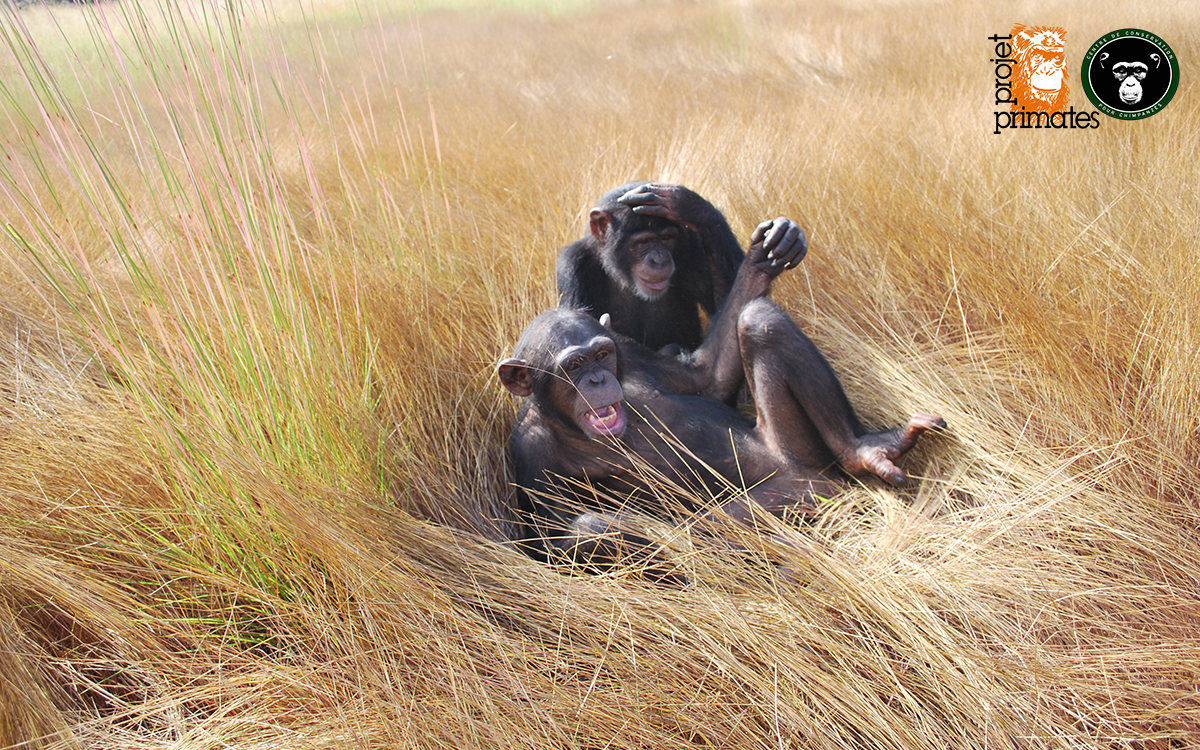
At the Chimpanzee Conservation Centre in Guinea our closest cousins start to live again.
The Chimpanzee Conservation Centre in Guinea looks after trafficked primates. It treats their wounds, both physical and psychological, and prepares them for release into the wild.
We have just entered into partnership with the organization Projet Primates France to support the Chimpanzee Conservation Centre (CCC) in the Republic of Guinea. We are looking forward to providing direct help towards rehabilitating our closest cousins into their natural environment. This scheme means we are also helping to protect many other species, combat deforestation and train local people.
Located 250 miles from Conakry, the capital of the country, far from any road or village, the Chimpanzee Conservation Centre (CCC) in the Republic of Guinea is cut off from the outside world, in the middle of the forest, as close as possible to the animals.
Survivors of trafficking
Almost a hundred chimpanzees – orphans, babies, juveniles and adults – have found refuge here since the centre was set up twenty years ago. Chimpanzees in great physical and psychological distress, trafficked and sold as companion animals. Most of the sixty-four currently living here have suffered the same dreadful experiences: their mothers and other members of their group were assassinated in front of their eyes when they were small. Then they were captured, taken from their native forest and sold into captivity.
A place of sanctuary
The Chimpanzee Conservation Centre works alongside the authorities during rescue operations, its mission being to offer a haven of peace and a new future for these unfortunate creatures. Some of them are in a pitiful state when they arrive. They are often very ill, specifically because of diseases that they have contracted as a result of their contact with humans and with which their immune systems cannot cope. They are then placed in quarantine for three months, during which time they receive treatment for both their physical and their psychological problems. In order to help it recover from its traumatic experiences each orphan is assigned a human ‘substitute mother’ to look after it round the clock. It is with its new mother that it returns to the forest for the first time to try out its skills. At the end of the quarantine period it is integrated into a group of chimpanzees and goes out into the bush with them every day, accompanied by two members of staff.
Rehabilitation
But the Centre is not only a refuge: its aim is also to return the chimpanzees to the wild once they have the necessary skills. It’s a long-term project during which over a dozen years the youngest chimpanzees are taught by their elders while gradually loosening ties with humans. In this ‘forest school’ they learn both to communicate among themselves and to forge social relationships, forage for food, use tools, hunt, recognise danger etc.
Release
As of today seventeen chimpanzees have already been released into a territory covering 20 square miles within the National Park of the Upper Niger, which is recognised as a key area for the conservation of this globally endangered species. It is amazing to watch these creatures, saved from a tragic fate, gradually regain confidence and autonomy and being accepted into groups of wild chimpanzees.
Interconnected goals
We are pleased and proud to take part in the remarkable work of the CCC through our partnership with Projet Primates France. In addition to helping to end the suffering of these creatures and to rehabilitate them, this scheme is also part of the fight to prevent deforestation and the death of many other animals (in particular the pangolins that share the same habitat) and to encourage local people to become involved. Human and non-human animals, planet – same fight!
Translated from the French by Patricia Fairey